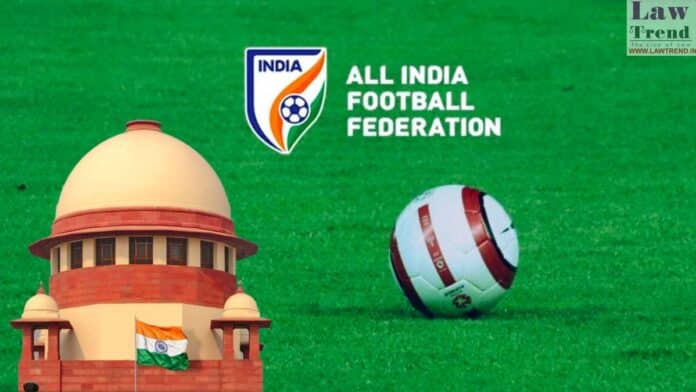The Supreme Court on Wednesday reserved its verdict on the finalisation of the All India Football Federation’s (AIFF) draft constitution, a document prepared by former apex court judge Justice L. Nageswara Rao in line with prior court directives.
A bench comprising Justices P.S. Narasimha and Joymalya Bagchi heard extensive submissions over several days from senior advocates, including Ranjit Kumar, Rahul Mehra, and amicus curiae Gopal Sankaranarayanan, before concluding the hearing and reserving its judgment.
The matter pertains to the restructuring of the AIFF’s internal governance through a revised constitution that introduces significant changes in tenure, age limits, and representation of players.
The draft constitution, framed by Justice Rao on the directions of the Supreme Court, proposes that no individual may hold office in the AIFF for more than 12 years in total, with a maximum of two successive four-year terms. A four-year cooling-off period is mandated after eight years in office, and persons above 70 years of age would no longer be eligible to serve in any capacity.
In terms of composition, the draft envisages an executive committee comprising 14 members, all subject to age and tenure limits. This includes one president, two vice presidents (with one seat reserved for a woman), one treasurer, and ten other members. Significantly, five of those ten must be eminent players, including at least two women.
The draft also introduces a mechanism for the removal of office bearers — including the president — via a no-confidence motion, a provision absent from the existing AIFF constitution.
The court had commenced hearings on March 25 and took note of objections raised by several stakeholders, including state football associations and former players, to various clauses in the draft. Amicus Gopal Sankaranarayanan acknowledged that while many suggestions were accommodated, changes inconsistent with previous Supreme Court judgments or the National Sports Code were not accepted.
The bench had earlier tasked Justice Rao with revising the constitution after hearing complaints from multiple stakeholders. Following this, Rao prepared the draft and submitted a report addressing the objections raised.




